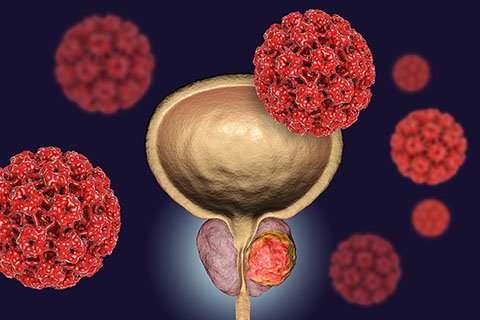

Prostate cancer is a disease that affects millions of men worldwide, hence the importance of prevention and early diagnosis to preserve their health and well-being. For this reason, the specialists in Urology of Quirónsalud Torrevieja explain what prostate cancer is, what are the frequent symptoms and how to detect it in time.
Symptoms
“In most cases prostate cancer is asymptomatic, so the diagnosis can be detected after performing the test known as PSA (Prostate Specific Antigen),” say urology specialists.
Obviously, when the disease is in a more advanced stage, it can present symptoms related to the disease, especially due to involvement of other organs outside the gland.
However, it may happen that a patient diagnosed with prostate cancer presents symptoms as a result of having a prostate that generates obstruction to the exit of urine, these symptoms do not necessarily have to correspond to prostate cancer, but are due to benign prostatic growth.
Tests
Prostate cancer is diagnosed by prostate biopsy, which consists of extracting fragments of the prostate with a fine needle in order to analyse them and establish a correct diagnosis based on each gradation of the tumour.
There are other tests that the doctor may request to help in the decision of prostate biopsy such as prostate magnetic resonance, so it is important to consult with the urology specialist so that he can assess the most correct action in each case.
Risk factors
Age:
Prostate cancer increases with age, especially after age 50-60. More than 80% of prostate cancer cases are diagnosed in men over age 65.
Race/Ethnicity:
Black men have a higher risk of prostate cancer than white men.
Family history:
The relationship between prostate cancer and heredity is known due to a combination of genes and environmental or lifestyle factors.
The hereditary component should be suspected when three or more first-degree relatives have had prostate cancer, affecting three generations on the same side of the family.
Eating habits:
Although there is no clear evidence that directly relates food with the development and prevention of cancer, we know that certain eating behaviours can be related to the appearance of cancer, so a healthy and varied diet is recommended.
Keys to preventing prostate cáncer
“The fundamental thing, as in other diseases, is to be able to make an early diagnosis to be able to treat the disease at an early stage of its evolution,” insist experts in urology.
Therefore, in the case of prostate cancer, periodic check-ups are essential for early diagnosis.
Revisions with prostate-specific antigen (PSA) are recommended in men at least annually.
Regarding the prevention of prostate cancer, and taking into account that there is still no clear scientific evidence regarding the relationship of cancer with diet, some rules of conduct that may be beneficial can be recommended:
– Control and reduce the consumption of foods rich in animal fat.
– A diet rich in vegetables, fruits and legumes.
– Ensure good hydration, drinking water regularly depending on physical activity or other recommendations of your doctor.
– Perform physical exercise according to their general health situation.
The prevention of both this and other pathologies is to try to lead a healthy lifestyle and, in case of new voiding symptoms or doubts, it is necessary to go to the specialist.
Prostate Cancer Treatments
For the treatment of prostate cancer there are several types of treatment, the most common are:
- Expectant management: it is indicated in the patient where it is expected that the tumour is not very aggressive. The conduct would be that of active surveillance.
This treatment option involves strict monitoring to control changes in the evolution of the tumour and thus take a different action.
- Surgical treatmentby radical prostatectomy. It is done with the intention of removing the prostate and its capsule, sometimes you also have to remove the lymph nodes in the area.
- It uses high-energy rays for the destruction of tumour tissue.
- Hormone therapy. It is used to block hormones that promote the development of cancer.
Any of these treatments has its advantages and disadvantages, so the information of the specialist is essential for a good decision by the patient as to what their expectations are to face the disease and therapeutic options.
Consult any questions with the specialists in Urology of Quirónsalud.




























